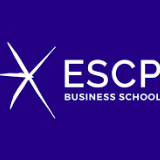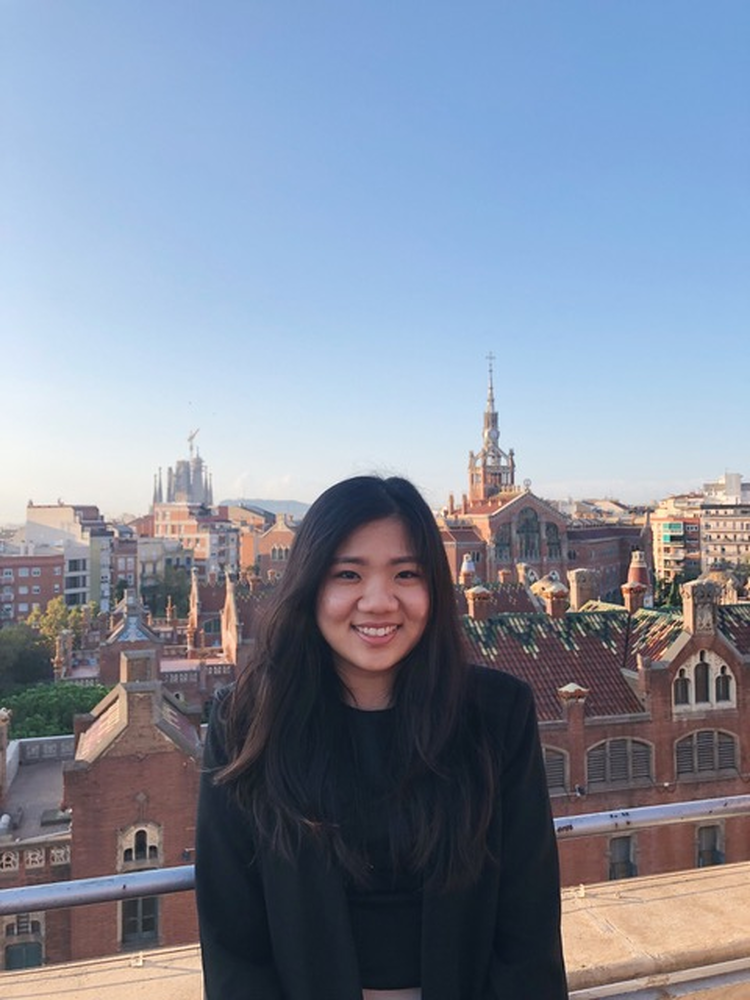





Exploring Tech Specialisations Through the Eyes of MiM Student Genia Foo

Can you introduce yourself ?
Prior to ESCP, I grew up in Singapore and later completed my Bachelor of International Business at Maastricht University in The Netherlands. During my undergraduate studies, I went on an exchange semester at ESSEC, which sparked my interest in continuing my studies in France. Professionally, I began my journey in Human Resources at DBS Bank, where I became curious about how people, processes, and technology come together to shape high-performing organisations. I was particularly interested in driving organisational transformation and improving internal efficiencies through digital tools. Between my bachelor’s and master’s studies, I further explored this interest through a role in consumer insights at NielsenIQ, where I had the opportunity to apply analytical thinking to deliver strategic recommendations for Fast Moving Consumer Goods clients. This experience served as a stepping stone into the consulting space, combining data-driven decision-making with business impact.
What motivated you to pursue a Master in Management at ESCP, and specifically these two specialisations: Leading in Artificial Intelligence & Big Data Business Innovation and Strategic Consulting for Business Transformation?
I was first drawn to ESCP’s prestige and international presence across multiple campuses. I chose the Leading in AI & Big Data Business Innovation specialisation as I wanted to understand AI beyond the buzz and its real business value. Strategic Consulting for Business Transformation has complemented this by equipping me with the skills to lead change in a digital and sustainable world. Together, they’ve prepared me to navigate fast-changing industries and contribute to tech-driven, strategic roles.
What are the most valuable skills you've gained from these specialisations, and how do you see them applying to your future career?
The AI specialisation equipped me with the ability to bridge technical knowledge and business needs— key for product or project roles. We were taught by guest lecturers from Oxford Saïd, to work with tools such as Python and Figma, which shaped our user-centred design thinking. The consulting track strengthened my strategic thinking and exposed us to real-world transformation projects with tier-1 consultancies, giving us a clear view of how to drive impact through structured problem-solving.
Could you describe one of the most interesting projects or case studies you've worked on, and what insights did you gain?
One of the most thought-provoking projects I’ve had during the consulting specialisation was on a strategic foresight course. Starting from an emerging trend, we applied PESTEL analysis to forecast long-term ripple effects, ultimately constructing plausible future scenarios. This exercise pushed my team and I to think systemically and long-term—an invaluable mindset for any role navigating change and uncertainty, which is very relevant in the current climate.
How has the international environment at ESCP influenced your perspective on AI, big data, and consulting?
Studying alongside peers from diverse backgrounds has broadened my understanding of how AI and big data are perceived and implemented globally. This exposure has highlighted the necessity of cultural sensitivity and adaptability in consulting, especially when deploying technology-driven solutions across different markets.
What has your experience been like as a woman in these tech-focused specialisations, and have you encountered any unique challenges or opportunities?
I’ve actually found more opportunities than challenges! ESCP’s diverse and international environment has made these specialisations feel inclusive. Being based in Berlin—one of Europe’s leading tech hubs—has made it easy to find women-in-tech communities (e.g. Xena). I was invited to SAP’s Innovation Through Expertise event, which featured inspiring panels and networking sessions celebrating women’s achievements in the industry. Events like these have been empowering and reinforce how important visibility and community are in shaping a more inclusive tech future.
Have you found any mentors or role models who have inspired you during your studies or career development, and have you had the opportunity to do an internship related to this sector?
One of the things I’ve valued most about ESCP is the strong network—from supportive career advisors to inspiring alumni. This semester, I had the pleasure of being taught by Professor Lanteri, whose insights on AI and transformation reshaped how I think about future strategies. During my internship at Siemens Energy, I even worked alongside a colleague who turned out to be an ESCP alumnus! It was such a cool moment that made me realise how far-reaching the ESCP community really is.
Are there any tech clubs within ESCP that have impacted your experience?
Yes! I’m currently part of the ESCP AI Society, which has been a fantastic space to explore real-world applications of AI beyond the classroom. From building AI-powered chatbots with Ncode Studio to discussing AI's role in productivity and development with Soraia, it's been inspiring to see how AI is reshaping how we work—from no-code tools to language models.
What are your plans after you graduate from the Master in Management programme?
After graduation, I hope to step into a strategy or consulting-focused role, ideally working on projects related to operational optimisation and business transformation. I’m especially drawn to fast-paced environments where I can contribute to solving complex challenges and driving meaningful improvements across organisations. I see these roles as some of the most valuable starting points in one’s career, offering a steep learning curve and broad exposure to industries, functions, and strategic decision-making early on.
- Views80
